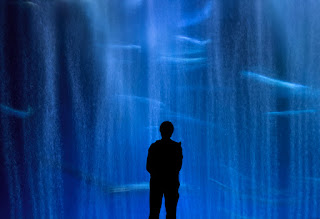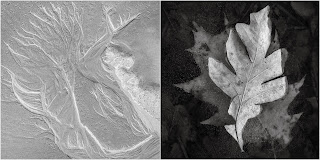"Let us consider, for a moment, the world as described by the physicist. It consists of a number of fundamental particles which, if shot through their own space, appear as waves, and are thus… of the same laminated structure as pearls or onions, and other wave forms called electromagnetic which it is convenient, by Occam’s razor, to consider as travelling through space with a standard velocity. All these appear bound by certain natural laws which indicate the form of their relationship.
Now the physicist himself, who describes all this, is, in his own account, himself constructed of it. He is, in short, made of a conglomeration of the very particulars he describes, no more, no less, bound together by and obeying such general laws as he himself has managed to find and to record.
Thus we cannot escape the fact that the world we know is constructed in order (and thus in such a way as to be able) to see itself. This is indeed amazing. Not so much in view of what it sees, although this may appear fantastic enough, but in respect of the fact that it can see at all.
But in order to do so, evidently it must first cut itself up into at least one state which sees, and at least one other state which is seen. In this severed and mutilated condition, whatever it sees is only partially itself. We may take it that the world undoubtedly is itself (i. e. is indistinct from itself), but, in any attempt to see itself as an object, it must, equally undoubtedly, act so as to make itself distinct from, and therefore false to, itself. In this condition it will always partially elude itself
It seems hard to find an acceptable answer to the question of how or why the world conceives a desire, and discovers an ability, to see itself, and appears to suffer the process. That it does so is sometimes called the original mystery. Perhaps, in view of the form in which we presently take ourselves to exist, the mystery arises from our insistence on framing a question where there is, in reality, nothing to question.
...
Thus the world, whenever it appears as a physical universe*, must always seem to us, its representatives, to be playing a kind of hide-and-seek with itself. What is revealed will be concealed, but what is concealed will again be revealed.
* unus = one, vertere = turn. Any given (or captivated) universe is what is seen as the result of a making of one turn, and thus is the appearance of any first distinction, and only a minor aspect of all being, apparent and non-apparent. Its particularity is the price wo pay for its visibility."












































